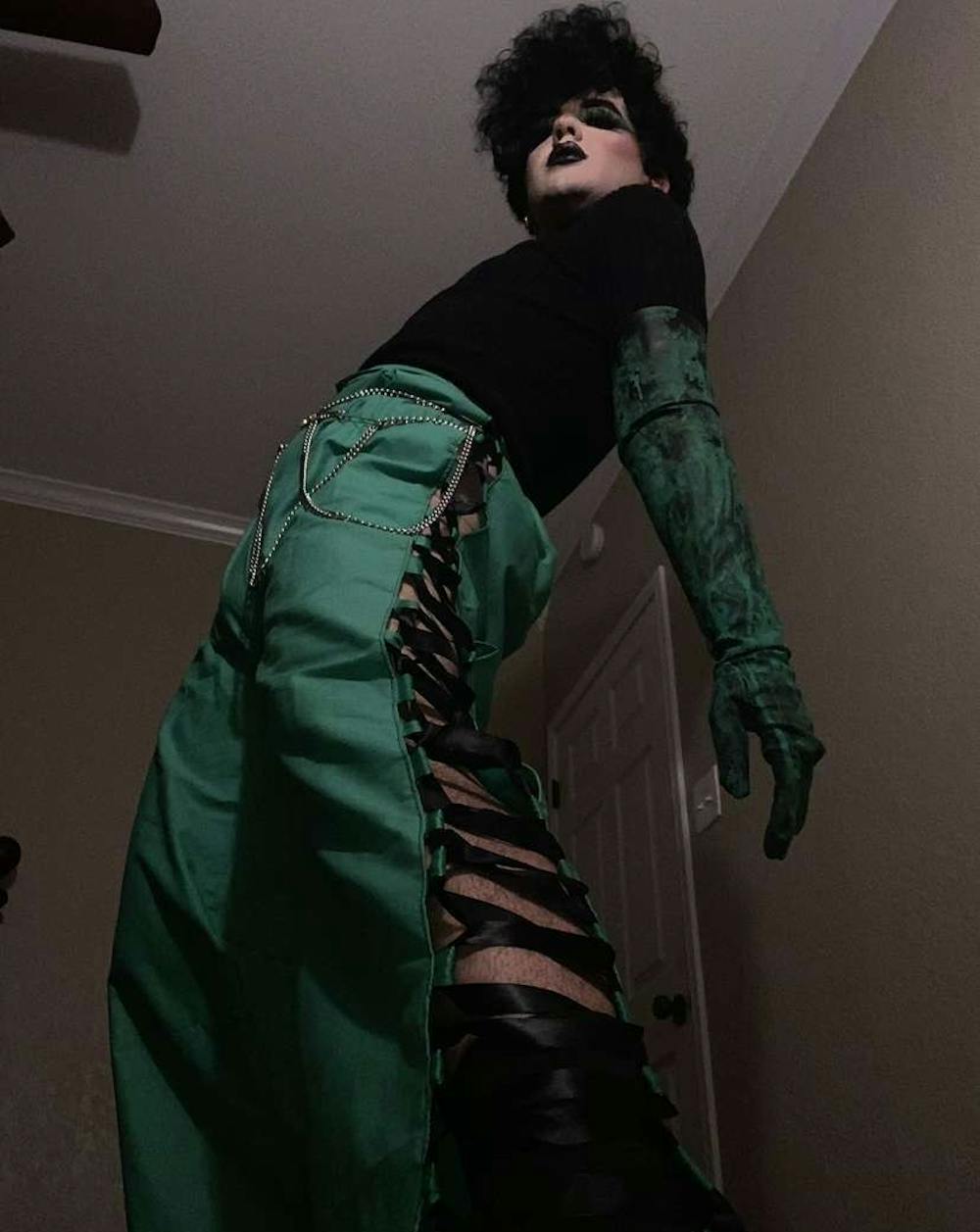In recent years, discussion around the ethics and practices of fast fashion has expanded: what it is, where it comes from and what it looks like. Fast fashion — clothing manufactured to reflect a trend — directly contributes to climate change, waste and overconsumption. Slow fashion, which is the more environmentally and ethically conscious approach to clothing production, places its emphasis on well-paid labor, good working conditions, handmade pieces and well-made garments, according to Forbes.
In order to combat the popularity of fast fashion, it is important to figure out how we can all fit ourselves into the slow-fashion movement, according to Joey Wagner, a senior at the University of New Mexico studying journalism who has made their own clothing since 2020.
Wagner is passionate about fashion, as well as slow fashion as a whole, and has hopes of entering the fashion journalism industry post-graduation. They said a common issue with fashion is accessibility, where clothing is often not made with all bodies in mind, which reflect the interests of the industry rather than individuals.
“I started because … I realized that nobody was making the clothes that I wanted to wear, so I said, ‘Screw it, I’ll do it myself,’” Wagner said.
Fast fashion can be the only accessible option for some people, including those with plus-sized bodies, according to Refinery29. Inclusivity is a consistent problem in the fashion industry, often excluding groups of people who do not fit the norms of high fashion, such as people of color, LGBTQ+ people, plus-sized people and people with disabilities.
“Over quarantine, I also fell really hard into my queerness … and I realized the clothes that are supposed to fit me just aren’t giving what I need them to.” Wagner said. “I’ve always been altering my clothes … since I was 10 years old, either painting them, adding things to them … doing whatever … I need(ed) to execute the exact vision I see for myself, so I decided making it myself would be the best option.”
Slow fashion not only helps one feel more intentional in their identity as opposed to fast fashion, but also helps express one’s creativity, according to UNM alumnus McKenna Donaldson, who has been making her own clothes since she was nine.
“I stopped sewing and picked it back up when I got to college. I moved into my own apartment and wanted nice things but couldn’t afford them,” Donaldson said. “I would go to thrift shops and get curtains and turn them into clothes, or I would pick furniture out of the dumpster, rip it apart and reupholster it.”
However, Donaldson also said this decision to make her own clothes stemmed from the same problem of retailers not offering clothing for everyone.
“Now that I have a job, I make clothes for myself because I don’t like most clothes from retailers,” Donaldson said. “It’s fast fashion: cheap fabric and an overall terrible quality.”
Brands such as Patagonia, Everlane and The Classic T-Shirt Company are amongst the leaders of the current slow-fashion movement, opting for transparency when it comes to their warehouses, production, emissions and water usage as opposed to fast-fashion brands that hide the production side of their businesses, according to Good on You. These slow-fashion brands place emphasis on clothing that holds up as time goes on, as well as basic, go-to pieces that can live in someone’s closet forever despite trend cycles.
Get content from The Daily Lobo delivered to your inbox
“If companies want to promote fair trade and be sustainable, I think that’s great, but I still think that mainstream media and/or culture doesn’t really support that idea, as styles and trends are constantly changing. Slow fashion isn’t built for that pace,” Donaldson said. “However, if being sustainable means slowing down trends, then sourcing things ethically is how we achieve that.”
Slow fashion is a slow process, as the name implies, meaning there is work to be done to transition over to a slower, more intentional fashion industry. Both Wagner and Donaldson said that we can all work on our relationships with clothing, whether it be by learning to make our own or by supporting brands that put intentional care into the garments they produce and sell.
Jordyn Bachmann is a freelance reporter at the Daily Lobo. She can be reached at culture@dailylobo.com or on Twitter @DailyLobo






